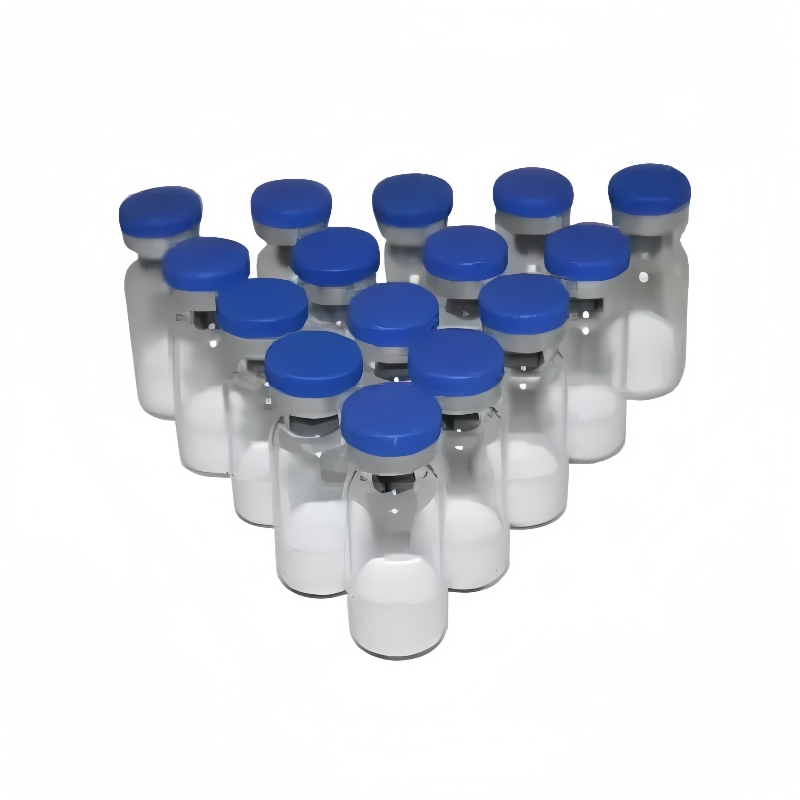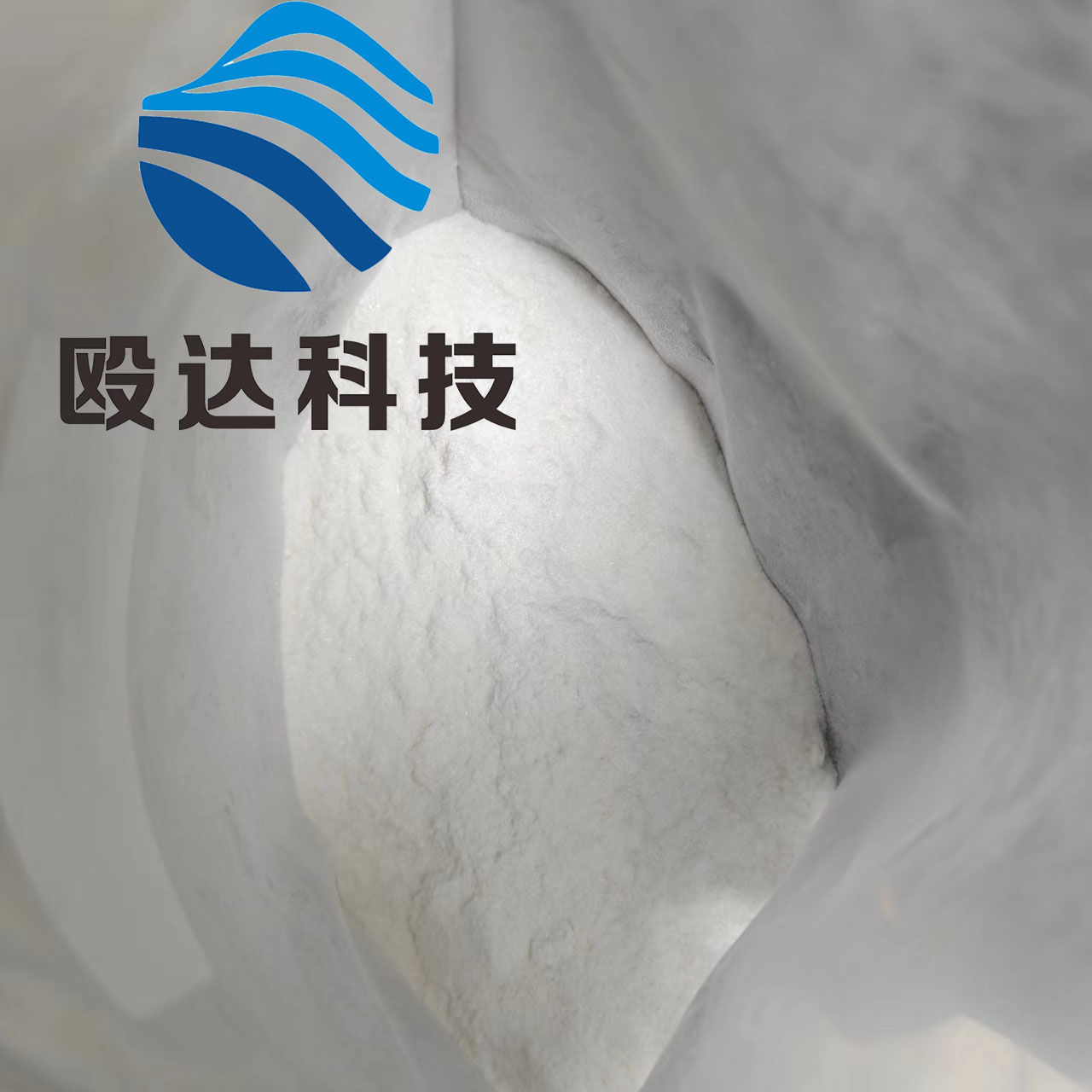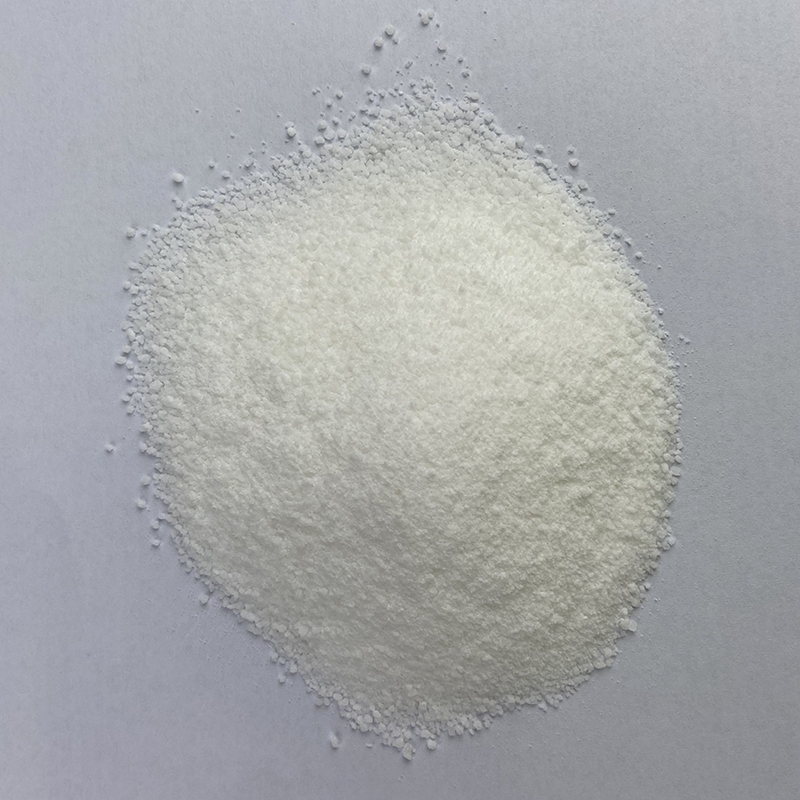-
Categories
-
Pharmaceutical Intermediates
-
Active Pharmaceutical Ingredients
-
Food Additives
- Industrial Coatings
- Agrochemicals
- Dyes and Pigments
- Surfactant
- Flavors and Fragrances
- Chemical Reagents
- Catalyst and Auxiliary
- Natural Products
- Inorganic Chemistry
-
Organic Chemistry
-
Biochemical Engineering
- Analytical Chemistry
- Cosmetic Ingredient
-
Pharmaceutical Intermediates
Promotion
ECHEMI Mall
Wholesale
Weekly Price
Exhibition
News
-
Trade Service
Yimaitong compiles and organizes, please do not reprint without authorization
.
Introduction: This article summarizes the recently released domestic and foreign endocrinology disease-related guidelines/consensus, for everyone to read and download
.
Chinese Expert Consensus on the Diagnosis and Treatment of Latent Autoimmune Diabetes in Adults (2021 Edition) Latent Autoimmune Diabetes in Adults (LADA) is a type of diabetes caused by slow autoimmune damage to pancreatic β cells
.
According to the etiological classification, LADA should belong to the autoimmune subtype of type 1 diabetes
.
LADA does not depend on insulin treatment in the early stage, and it is easy to be misdiagnosed as type 2 diabetes
.
The prevalence of LADA in China is at a relatively high level in the world, and the number of patients is the first in the world
.
Early diagnosis and timely and correct intervention are beneficial to delay the development of LADA
.
In order to standardize the comprehensive management of LADA, the Chinese Medical Doctor Association Endocrinology and Metabolism Physician Branch and the National Metabolic Disease Clinical Medicine Research Center (Changsha) specially organized experts to revise the first edition of the consensus, and formed the "Chinese Expert Consensus on the Diagnosis and Treatment of Adult Occult Autoimmune Diabetes" 2021 edition)", which covers LADA epidemiology, genetics, immunological characteristics, clinical manifestations, diagnosis and typing, treatment and management
.
This consensus will help convey important recent clinical developments and guide clinical practice
.
Download link: http://guide.
medlive.
cn/guideline/24419 Expert guidance on the initial adjustment phase of basal insulin in adults with type 2 diabetes
.
If the blood glucose control is not up to standard in the first 3 months after the initiation of insulin, the risk of HbA1c failure to meet the standard increases after 24 months
.
Therefore, adequate adjustment of the dose during the initial adjustment period of insulin to optimize blood glucose levels can lay the foundation for achieving long-term good blood glucose control
.
In order to better standardize the management of the initial adjustment period of basal insulin in China and further improve the blood glucose control of T2DM patients receiving insulin therapy, clinical experts in the field of endocrine and metabolic diseases in China jointly formulated the "Adult Type 2 Diabetes" based on evidence-based medicine.
"Expert Guidance Opinions on the Initial Adjustment Period of Basic Insulin" for reference by clinicians
.
Download link: http://guide.
medlive.
cn/guideline/24349 Related reading: How to set the initial insulin dose and how to adjust? The latest "Expert Guidance" gives advice! Relieving Type 2 Diabetes Chinese Experts Consensus At present, China has a high incidence of Type 2 Diabetes (T2DM).
Patients are under psychological, physical, social, economic and other pressures.
If diabetes relief can be achieved, it will be beneficial to patients, their families, and the entire society.
Of great significance
.
Therefore, Professor Dajin Zou, Professor Zhang Zheng, and Professor Ji Linong led domestic experts to organize domestic experts, combined with domestic and foreign research evidence and the ADA consensus report, and formulated a "Consensus of Chinese Experts on Alleviating Type 2 Diabetes" that meets the health needs of Chinese diabetic patients.
Guide clinicians to standardize the diagnosis and treatment of T2DM relief, and help T2DM patients obtain safe, effective and economic intervention measures
.
Download link: http://guide.
medlive.
cn/guideline/24230 Related reading: 5 programs to "reverse" diabetes, and the first "Consensus of Chinese Experts on Relieving Type 2 Diabetes" was released! 2021 ADA/EASD Consensus Report: Management of Patients with Type 1 Diabetes The American Diabetes Association (ADA) and the European Association for the Study of Diabetes (EASD) jointly released a consensus on the management of patients with type 1 diabetes
.
The main content involves the preliminary assessment and treatment of type 1 diabetes patients, the blood glucose management goals of adult type 1 diabetes patients, the general principles of blood glucose management, the management flowchart of suspected type 1 diabetes, and the adjuvant treatment plan of type 1 diabetes (metformin, general Lan peptide, GLP-1RA, SGLT-2i ), β cell replacement therapy indications, insulin and blood glucose monitoring selection policy
.
Download link: http://guide.
medlive.
cn/guideline/24257 Related reading: Leading a new direction in diabetes management? The first "Management of Adult Type 1 Diabetes: ADA/EASD Joint Consensus" is released! Chinese Insulin Pump Treatment Guidelines (2021 edition) Insulin pump therapy is one of the important methods of intensive insulin therapy.
It can simulate the physiological secretion mode of human insulin to the greatest extent, and better realize the blood glucose management of diabetic patients
.
This edition of the Chinese Guidelines for Insulin Pump Treatment is the fourth major update based on the 2009, 2010, and 2014 editions of the guidelines
.
The new version of the guidelines not only highlights the operating techniques of new and classic insulin pump therapy, but also covers issues closely related to insulin pump therapy, including diet and exercise management during insulin pump therapy, blood glucose monitoring, blood glucose control quality assessment, and low blood pressure.
Measures of blood glucose, insulin pump installation, management and maintenance both inside and outside the hospital
.
Download link: http://guide.
medlive.
cn/guideline/24107 Related reading: "Chinese Insulin Pump Treatment Guidelines (2021 Edition)" is released in full! Focusing on "blood glucose control goals, insulin dose setting and adjustment", "Expert Consensus on Nail Disease Care for Diabetic Patients" Interpretation of Diabetic Foot Disease is one of the common chronic complications of diabetes.
In severe cases, patients can cause amputation (toe) or death.
It is an important health issue that has increased the burden on society
.
Nail disease is an important risk factor for the development of diabetic foot ulcers
.
In 2020, the Diabetes Nursing Professional Committee of the Chinese Nursing Association formulated the "Expert Consensus on Onychoidosis Care of Diabetic Patients", which provides unified norms and guidance for clinical onychomycosis care
.
This article will interpret the consensus from four aspects: its background and significance, overview and characteristics, key points of content, and clinical application thinking, in order to provide a reference for clinically better carrying out relevant nursing work
.
Download link: http://guide.
medlive.
cn/guidelinesub/84492021 PS Guide: Cushing’s disease diagnosis and management consensus (updated version) Cushing’s disease requires accurate diagnosis, careful treatment and long-term management to optimize patient prognosis
.
The Pituitary Society (PS) held the latest consensus seminar to discuss the application of the latest evidence in clinical practice
.
This article mainly introduces the laboratory examinations, imaging examinations, treatment selection recommendations for Cushing's disease, and the diagnosis and management process of Cushing's syndrome
.
Download link: http://guide.
medlive.
cn/guideline/24376 The consensus of experts on the screening of neonatal genetic and metabolic diseases during the novel coronavirus pneumonia epidemic It has occurred in various countries around the world, and has not yet been fully controlled.
There have been reports of infections in children and even newborns.
Approximately 15 million newborns are born in China every year.
Newborn screening for genetic and metabolic diseases is required, which poses potential risks
.
Based on the current situation, some experts from the Newborn Disease Screening Center of the Children’s Hospital of Chongqing Medical University and the United Nations National Health Committee Clinical Laboratory Center Newborn Disease Screening Room Quality Evaluation Professional Committee, after discussion, proposed a new type of coronavirus lung ) System recommendations for the screening, diagnosis, treatment and follow-up of neonatal genetic and metabolic diseases during the epidemic
.
Download link: http://guide.
medlive.
cn/guideline/24281
.
Introduction: This article summarizes the recently released domestic and foreign endocrinology disease-related guidelines/consensus, for everyone to read and download
.
Chinese Expert Consensus on the Diagnosis and Treatment of Latent Autoimmune Diabetes in Adults (2021 Edition) Latent Autoimmune Diabetes in Adults (LADA) is a type of diabetes caused by slow autoimmune damage to pancreatic β cells
.
According to the etiological classification, LADA should belong to the autoimmune subtype of type 1 diabetes
.
LADA does not depend on insulin treatment in the early stage, and it is easy to be misdiagnosed as type 2 diabetes
.
The prevalence of LADA in China is at a relatively high level in the world, and the number of patients is the first in the world
.
Early diagnosis and timely and correct intervention are beneficial to delay the development of LADA
.
In order to standardize the comprehensive management of LADA, the Chinese Medical Doctor Association Endocrinology and Metabolism Physician Branch and the National Metabolic Disease Clinical Medicine Research Center (Changsha) specially organized experts to revise the first edition of the consensus, and formed the "Chinese Expert Consensus on the Diagnosis and Treatment of Adult Occult Autoimmune Diabetes" 2021 edition)", which covers LADA epidemiology, genetics, immunological characteristics, clinical manifestations, diagnosis and typing, treatment and management
.
This consensus will help convey important recent clinical developments and guide clinical practice
.
Download link: http://guide.
medlive.
cn/guideline/24419 Expert guidance on the initial adjustment phase of basal insulin in adults with type 2 diabetes
.
If the blood glucose control is not up to standard in the first 3 months after the initiation of insulin, the risk of HbA1c failure to meet the standard increases after 24 months
.
Therefore, adequate adjustment of the dose during the initial adjustment period of insulin to optimize blood glucose levels can lay the foundation for achieving long-term good blood glucose control
.
In order to better standardize the management of the initial adjustment period of basal insulin in China and further improve the blood glucose control of T2DM patients receiving insulin therapy, clinical experts in the field of endocrine and metabolic diseases in China jointly formulated the "Adult Type 2 Diabetes" based on evidence-based medicine.
"Expert Guidance Opinions on the Initial Adjustment Period of Basic Insulin" for reference by clinicians
.
Download link: http://guide.
medlive.
cn/guideline/24349 Related reading: How to set the initial insulin dose and how to adjust? The latest "Expert Guidance" gives advice! Relieving Type 2 Diabetes Chinese Experts Consensus At present, China has a high incidence of Type 2 Diabetes (T2DM).
Patients are under psychological, physical, social, economic and other pressures.
If diabetes relief can be achieved, it will be beneficial to patients, their families, and the entire society.
Of great significance
.
Therefore, Professor Dajin Zou, Professor Zhang Zheng, and Professor Ji Linong led domestic experts to organize domestic experts, combined with domestic and foreign research evidence and the ADA consensus report, and formulated a "Consensus of Chinese Experts on Alleviating Type 2 Diabetes" that meets the health needs of Chinese diabetic patients.
Guide clinicians to standardize the diagnosis and treatment of T2DM relief, and help T2DM patients obtain safe, effective and economic intervention measures
.
Download link: http://guide.
medlive.
cn/guideline/24230 Related reading: 5 programs to "reverse" diabetes, and the first "Consensus of Chinese Experts on Relieving Type 2 Diabetes" was released! 2021 ADA/EASD Consensus Report: Management of Patients with Type 1 Diabetes The American Diabetes Association (ADA) and the European Association for the Study of Diabetes (EASD) jointly released a consensus on the management of patients with type 1 diabetes
.
The main content involves the preliminary assessment and treatment of type 1 diabetes patients, the blood glucose management goals of adult type 1 diabetes patients, the general principles of blood glucose management, the management flowchart of suspected type 1 diabetes, and the adjuvant treatment plan of type 1 diabetes (metformin, general Lan peptide, GLP-1RA, SGLT-2i ), β cell replacement therapy indications, insulin and blood glucose monitoring selection policy
.
Download link: http://guide.
medlive.
cn/guideline/24257 Related reading: Leading a new direction in diabetes management? The first "Management of Adult Type 1 Diabetes: ADA/EASD Joint Consensus" is released! Chinese Insulin Pump Treatment Guidelines (2021 edition) Insulin pump therapy is one of the important methods of intensive insulin therapy.
It can simulate the physiological secretion mode of human insulin to the greatest extent, and better realize the blood glucose management of diabetic patients
.
This edition of the Chinese Guidelines for Insulin Pump Treatment is the fourth major update based on the 2009, 2010, and 2014 editions of the guidelines
.
The new version of the guidelines not only highlights the operating techniques of new and classic insulin pump therapy, but also covers issues closely related to insulin pump therapy, including diet and exercise management during insulin pump therapy, blood glucose monitoring, blood glucose control quality assessment, and low blood pressure.
Measures of blood glucose, insulin pump installation, management and maintenance both inside and outside the hospital
.
Download link: http://guide.
medlive.
cn/guideline/24107 Related reading: "Chinese Insulin Pump Treatment Guidelines (2021 Edition)" is released in full! Focusing on "blood glucose control goals, insulin dose setting and adjustment", "Expert Consensus on Nail Disease Care for Diabetic Patients" Interpretation of Diabetic Foot Disease is one of the common chronic complications of diabetes.
In severe cases, patients can cause amputation (toe) or death.
It is an important health issue that has increased the burden on society
.
Nail disease is an important risk factor for the development of diabetic foot ulcers
.
In 2020, the Diabetes Nursing Professional Committee of the Chinese Nursing Association formulated the "Expert Consensus on Onychoidosis Care of Diabetic Patients", which provides unified norms and guidance for clinical onychomycosis care
.
This article will interpret the consensus from four aspects: its background and significance, overview and characteristics, key points of content, and clinical application thinking, in order to provide a reference for clinically better carrying out relevant nursing work
.
Download link: http://guide.
medlive.
cn/guidelinesub/84492021 PS Guide: Cushing’s disease diagnosis and management consensus (updated version) Cushing’s disease requires accurate diagnosis, careful treatment and long-term management to optimize patient prognosis
.
The Pituitary Society (PS) held the latest consensus seminar to discuss the application of the latest evidence in clinical practice
.
This article mainly introduces the laboratory examinations, imaging examinations, treatment selection recommendations for Cushing's disease, and the diagnosis and management process of Cushing's syndrome
.
Download link: http://guide.
medlive.
cn/guideline/24376 The consensus of experts on the screening of neonatal genetic and metabolic diseases during the novel coronavirus pneumonia epidemic It has occurred in various countries around the world, and has not yet been fully controlled.
There have been reports of infections in children and even newborns.
Approximately 15 million newborns are born in China every year.
Newborn screening for genetic and metabolic diseases is required, which poses potential risks
.
Based on the current situation, some experts from the Newborn Disease Screening Center of the Children’s Hospital of Chongqing Medical University and the United Nations National Health Committee Clinical Laboratory Center Newborn Disease Screening Room Quality Evaluation Professional Committee, after discussion, proposed a new type of coronavirus lung ) System recommendations for the screening, diagnosis, treatment and follow-up of neonatal genetic and metabolic diseases during the epidemic
.
Download link: http://guide.
medlive.
cn/guideline/24281







